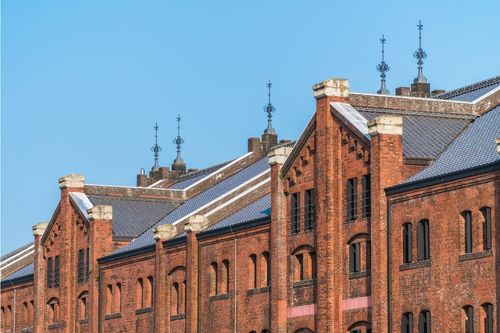Table of Contents
- King’s College London-foundation
- King’s College London-campuses
- Courses and added benefits
- Studying at King’s will provide you with the following advantages
- Arts and Humanities
- Business & Management
- Accounting, Accountability & Financial Management MSc
- Engineering and Technology
- Life Sciences and Medicine
- Natural Sciences (27)
- Key takeaways
- FAQs
King’s College London is well-known for its world-class teaching and cutting-edge research. Eighty-four percent of King’s research was classified as ‘world-leading’ or ‘internationally exceptional.’ The institution is one of the top seven UK universities in research earnings, with an annual income of more than £684 million.
The arts, law, sciences (including psychiatry, medicine, nursing, and dentistry), and social sciences, including international affairs, have a particularly outstanding reputation at King’s. The university played an important part in many of the breakthroughs that have defined contemporary life, such as the discovery of the structure of DNA and research that contributed to the invention of the radio, television, mobile phones, and radar.
King’s College London-foundation

The theological debate surrounding the formation of ‘London University’ (later University College, London) in 1826 prompted the establishment of King’s College in 1829 (albeit the roots of King’s medical school, St. Thomas, extend back to the 16th century with the recorded first instruction in 1561).
With the support of Utilitarians, Jews, and Nonconformists, London University was formed as a secular university to educate ‘the youth of the medium rich people between the ages of 15 or 16 and 20 or later, earning it the moniker ‘the godless college on Gower Street.’
The religious and social nature of the universities of Oxford and Cambridge, which at the time only taught the sons of wealthy Anglicans, necessitated the creation of such an institution.
The secular nature of London University drew criticism, and ‘storms of hostility raged around it, threatening to smash every spark of vital fire that remained.’
Thus, establishing a rival school signified a Tory response to reinforce the established order’s educational values.
More broadly, King’s was one of the first institutions that arose in the early nineteenth century due to the Industrial Revolution and major social upheavals in England due to the Napoleonic Wars.
King’s has benefited right from its foundation.
Since its inception, King’s has had the patronage of the monarch, the Archbishop of Canterbury as a visitor, and the Lord Chancellor, Speaker of the House of Commons, and Lord Mayor of London among its official governors.
King’s College London-campuses
King’s Health Partners include King’s College London and Guy’s and St Thomas’, King’s College Hospital, and the South London and Maudsley NHS Foundation Trusts.
The Academic Health Sciences Centre (AHSC) at King’s Health Partners is a ground-breaking global collaboration between one of the world’s leading research universities and three of London’s most successful NHS Foundation Trusts, which include leading teaching hospitals and comprehensive mental health services.
Strand campus
The Strand Site is King’s foundation campus, located on the Strand in the City of Westminster, with the river Thames on the front. The original campus consists of the Grade I listed King’s Building, designed by Sir Robert Smirke in 1831, and the King’s College London Chapel, redesigned in 1864 by Sir Gilbert Scott, with the subsequent purchase of much of adjacent Surrey Street (including the Norfolk and Chesham buildings) since WWII and the Strand Building in 1972. The Strand Campus Students’ Union is housed in the 1975 Macadam Building, named after King’s alumnus Sir Ivison Macadam, the first president of the National Union of Students.
The Strand campus houses King’s arts and scientific faculties, including the Arts & Humanities, Law, Business, Social Science & Public Policy, and Natural & Mathematical Sciences faculties (formerly Physical Sciences & Engineering). It also houses the president’s and principal’s offices.
Guy’s campus
Guy’s Campus, located on the South Bank of the Thames near London Bridge and the Shard, is home to the Faculty of Life Sciences & Medicine and the Dental Institute.
The campus is named after Thomas Guy, the founder and patron of Guy’s Hospital, founded in the London Borough of Southwark in 1726. The Henriette Raphael building, built in 1902, the Gordon Museum of Pathology, the Hodgkin building, Shepherd’s House, and Guy’s Chapel are among the structures built on campus.
On Guy’s campus, the Students’ Union features extensive amenities such as activity rooms, meeting rooms, a student cafe called The Shed, and a student bar called Guy’s Bar. Guy’s campus is directly across the street from the Ancient Operating Theatre Museum, part of Southwark’s old St Thomas Hospital.
Waterloo campus
The Waterloo Campus is located in the London Borough of Lambeth, across Waterloo Bridge from the Strand Campus, near the Southbank Centre. It comprises the James Clerk Maxwell Building, the Franklin-Wilkins Building, and the Waterloo Bridge Wing Building.
Cornwall House, now the Franklin-Wilkins Building, was formerly the ‘His Majesty’s Stationery Office’ (responsible for Crown copyright and the National Archives) but was requisitioned for use as a military hospital during World War I in 1915. It was renamed King George Military Hospital and housed around 1,800 patients in 63 wards.
The edifice, now the largest university building in London, was purchased by King’s in the 1980s and underwent substantial renovations in 2000.
The structure of DNA is named for Rosalind Franklin and Maurice Wilkins due to her work for X-ray diffraction at King’s, who made significant contributions to its discovery
It is now home to
- Diabetes and Nutritional Sciences Division, School of Biomedical Sciences (part of the Faculty of Life Sciences & Medicine)
- Education, Communication, and Society School (part of the Faculty of Social Science & Public Policy)
- LonDEC stands for London Dental Education Centre (part of the Faculty of Dental, Oral & Craniofacial Sciences)
Courses and added benefits

- King’s College London may be your place if you want to make a difference and shape our world.
- For nearly 200 years, the college has provided academically renowned degrees. The college’s 40,000 alumni from 172 countries have changed thoughts and progressed in fields as diverse as healthcare, banking, arts, and politics.
Studying at King’s will provide you with the following advantages
- A prominent university in the center of London.
- One of the top 20 universities in the world (2015-16 QS international world rankings) and the UK’s fourth oldest.
- 40,000 graduates from 172 countries, including 12 Nobel laureates.
- Unique connections with institutions in the arts, sciences, politics, law, and medicine, assisting students in developing networks and employer contacts.
- A successful Modern Language Centre, career service, and study abroad program to improve your employability and talents.
- An award-winning Student Union with over 250 sports clubs, activity groups, and student societies to help you broaden your horizons while pursuing your academic goals.
Programs are available in the following streams
Arts and Humanities
- Ancient History (BA)
- Classical Archaeology (BA)
- Classical Studies & Comparative Literature (BA)
- Classical Studies (BA)
- Classical Studies with English (BA)
- Classics (Greek & Latin) (BA)
- Ancient History (MA)
- Applied Linguistics and English Language Teaching (MA)
- Applied Linguistics and English Language Teaching (MA) (fast track)
- Arts & Cultural Management (MA)
Business & Management
- Accounting & Finance (BSc)
- Business Management (BSc)
- International Management (BSc)
- Management & Modern Languages (French, German, Portuguese, or Spanish) with a year abroad (BA)
Accounting, Accountability & Financial Management MSc
- Banking & Finance (MSc)
- Computational Finance (MSc)
- Digital Marketing (MSc)
- Executive Management (MSc)
- Finance (Asset Pricing) (MSc)
Engineering and Technology
- Biomedical Engineering (BEng)
- Biomedical Engineering (MEng)
- Computer Science (BSc)
- Computer Science (MSci)
- Computer Science with Intelligent Systems (BSc)
- Computer Science with Management & a year abroad (BSc)
- Advanced Computing (MSc)
- Advanced Software Engineering (MSc)
- Artificial Intelligence (MSc)
- Big Data in Culture & Society (MA)
- Cyber Security (MSc)
Life Sciences and Medicine
- Anatomy, Developmental & Human Biology BSc (Hons)
- Anatomy, Developmental & Human Biology (iBSc)
- BSc Biomedical Science
- Clinical Practice (BSc)
- Dental Therapy & Hygiene (BSc)
- Dentistry (BDS)
- Addiction Studies (MSc)
- Advanced Clinical Practice (MSc)
- Advanced Minimum Intervention Dentistry (MSc)
- Advanced Paediatrics (MSc)
- Aerospace Medicine (MSc)
Natural Sciences (27)
- Biochemistry (BSc)
- Biochemistry MSci (Hons)
- Chemistry (BSc)
- Chemistry (MSci)
- Chemistry with Biomedicine (BSc)
- Chemistry with Biomedicine (MSci)
- Climate Change: Environment, Science & Policy (MSc)
- Complex Systems Modelling – from Biomedical & Natural to Economic & Social Sciences (MSc)
- Disasters, Adaptation & Development (MSc)
Key takeaways
- King’s College London is renowned for its world-class teaching and cutting-edge research. It is considered one of the top seven UK universities in research earnings, with an annual income of more than £684 million.
- King’s Health Partners include Guy’s and St Thomas’, King’s College Hospital, and the South London and Maudsley NHS Foundation Trusts. The Academic Health Sciences Centre (AHSC) is a global collaboration between one of the world’s leading research universities and three of London’s most successful NHS Foundation Trusts.
- For nearly 200 years, King’s College has provided academically renowned degrees for about 200 years and so on. 40,000 King’s alumni from 172 countries have changed thoughts and made progress in fields as diverse as healthcare, banking, arts, and politics.
Did you find this blog informative? If so, please share your thoughts in the comments section below. Click here to contact us for more information on King’s College London. We would be happy to assist you with your queries.
Liked this blog? read next: Top universities to study arts | 10 must-know ones!
FAQs
Q1. What is King’s College London famous for?
Ans- The arts, law, sciences (including psychiatry, medicine, nursing, and dentistry), and social sciences, including international affairs, have a particularly outstanding reputation at King’s.
Q2. Is King’s College London an elite university?
Ans- King’s College London is ranked #33 on the list of the Best Global Universities
Schools by US news. King’s College London is one of England’s oldest and most distinguished colleges, making it an elite university.
Q3. Is tuition for King’s College expensive?
Ans- Tuition at King’s College is $21,690.
King’s College is less expensive than the national average cost of tuition of $44,423.







